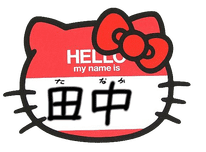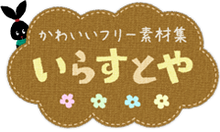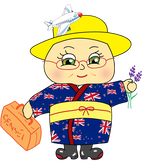Asking someone their name / Saying our names : : Simple version
GIRLS OR BOYS:
JUST FOR BOYS:
*The 'u' sound at the end of 'desu' is not pronounced.
*Boys can use 'boku' instead of 'watashi' if they prefer.
*Boys can use 'boku' instead of 'watashi' if they prefer.
Asking someone their name / Saying our names : : Full sentence version
Introducing someone else:
Use the word "kochira" when you introduce someone else. "Kochira" is a polite way of saying "this". Remember to add "san" after their name, to show respect.
- (The exception is when we introduce someone from our own family - to show that we are humble about our family, we don't add "san" to our family members' names when introducing them.)
Should we say 'namae' or 'o-namae'?
- It's polite to say 'o-namae' when we are asking about someone else's name. The 'o' in 'o-namae' is honorific. (A way of showing respect to others.)
- We say just 'namae' when we talk about our own name, (We don't use honorifics for ourselves!)
Some interesting facts about Japanese names...
|
SURNAMES COME BEFORE 'FIRST' NAMES
|
WE ALWAYS USE TITLES WITH PEOPLE'S NAMES
- The general title for people of all ages is 'San'.
- Sensei is the title for doctors and teachers.
- Mr Smith is Sumisu San.
- Mrs Evans (a teacher) is Ebanzu Sensei.
- Titles are used with first names and surnames.
- John is Jyon San.
- Even babies and little children get a title! It's Chan.
- If a little baby's name is Maki, we call them Maki Chan.
- Hello Kitty is called Kitty Chan in Japan
MANY JAPANESE SURNAMES ARE DERIVED FROM THE LAND AND LANDSCAPE FEATURES
|
|
|
















